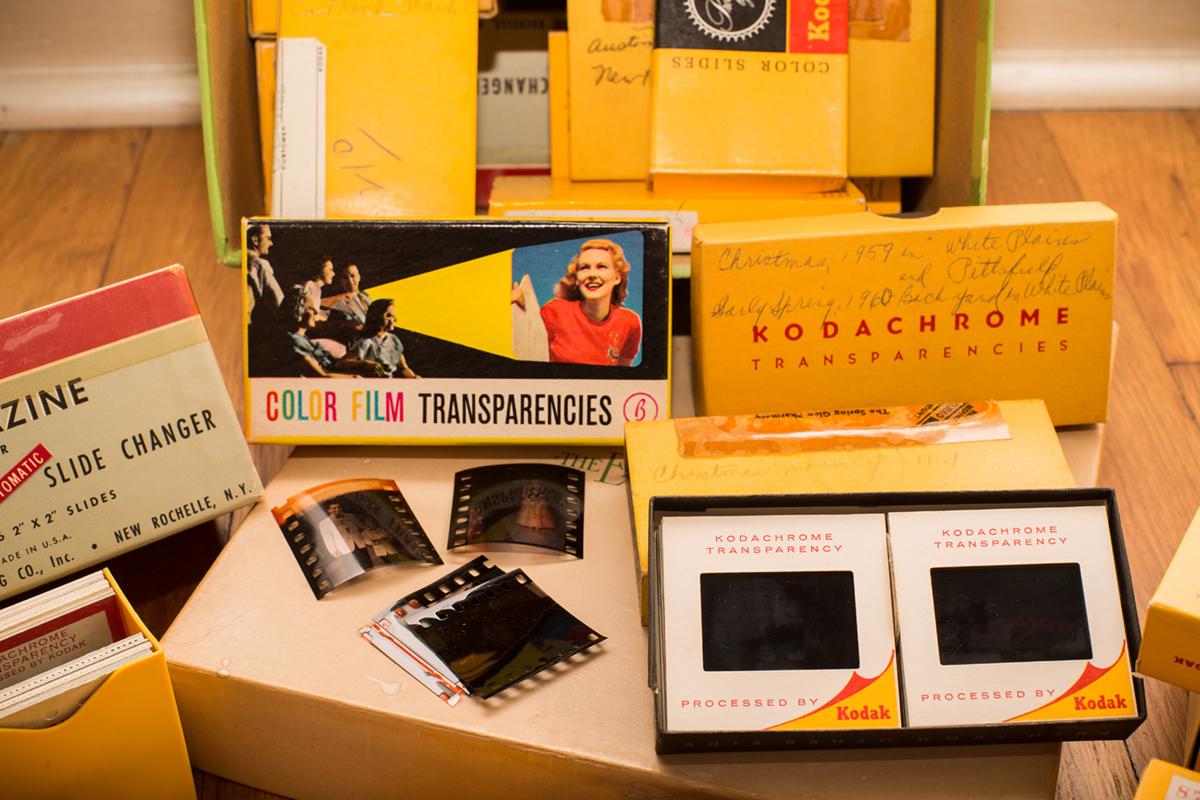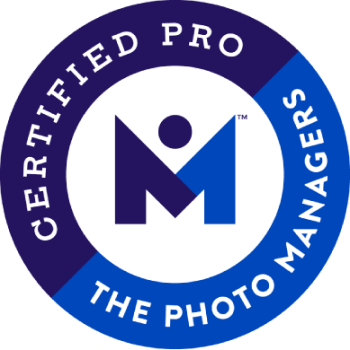Digitizing Your Print Images: Why You Needed to Yesterday!

Now-a-days we can take photos on our fancy cameras, computers, phones, tablets – you name it! These photos (as long as they are backed up) are impervious to time & the elements. Not to mention you can also easily share these images with anyone & everyone! However, in the past paper photographs, slides, & negatives were the way you cherished your favorite moments. And unlike digital photos, they are not easily protected or shared.
What Will Happen to Your Analog Images?
No matter how your items are stored, they are NOT impervious to time. The elements will all have an effect on your images & the longer you keep them in analog form the higher your risk of loss or damage. Unlike digital photos, paper photos, slides, & negatives all have very delicate layers that contain the images you cherish so dearly. Here are just a few things that can happen to your analog memories:
Water
Water can damage or completely ruin your photos, slides & negatives. Whether it’s in the form of large drops of water, humidity, or complete submersion – your images will be impacted if they come in contact with too much moisture.
Water can cause your images to stick to one another if they are stacked which may lead to the images being ripped and ruined when you try to separate them. It can cause the images to stick to other surfaces i.e. the box they are stored in, the tables they are sitting on, etc. This will cause the same problem as when images stick together. Lastly, water can actually distort and/or change the coloring in an image. If that water is in the wrong place is can ruin the most important part of the image!
Heat
Fire, sunlight, & heaters are just a few ways heat can ruin your most beloved memories. As I’m sure you guessed fire can easily burn through and completely obliterate your photos, while sunlight will cause them to fade. If exposed to sunlight for too long – parts of images can disappear completely especially from slides & negatives.
Heaters are the not so obvious one. If slides and negatives are in constantly fluctuating temperatures going from hot to cold and back, the film is much more likely to crack. And the images aren’t always restorable when this happens. If heat & moisture are mixed the images are also VERY likely to adhere in a way where you won’t be able to separate them without damage.
Debris
Dust & dirt are just two of the most common forms of debris that get into stored photos, slides, & negatives. While these particles may look tiny to us they can cause irreparable damage to photos. They can adhere to the images or scratch them. Photo restoration is typically an option is a photos is slightly damaged in this case, but it can be very costly typically starting at $50 – $75 per photo.
Time
Unless your photos are stored in archival quality sleeves, in sealed containers, in a temperature controlled environment where no disasters get to them – natural wear and tear will occur. Your photos, slides, & negatives, are being exposed to the elements & potentially people or critters. Fading, wrinkling, tears, water marks, & scratches are inevitable. And in the worst case scenarios flooding or fires could claim these very precious memories.
How to Protect Your Analog Memories
Digitizing your photos AND backing them up is the only way to truly preserve your memories. Water, fire, debris, & time can’t impact the integrity of your digital images. But, what may be even better is that you can now enjoy your photos easily on your phone, tablet, computer, or TV. You’ll no longer have to dig them out of your attic, basement, or storage unit & endure itchy eyes from your dust allergy. You can also share them in a matter of moments with someone next door or across the globe.
Don’t lose your favorite family history & memories forever. Digitize your analog memories and have them for a lifetime & beyond.
A big thanks to guest blogger Cora Foley of Smooth Photo Scanning Services for lending her expertise on this important topic! To learn more about Cora and Smooth Photo Scanning Services, visit them here: www.smoothphotoscanning.com
Bio:
Cora Foley has worked at Smooth Photo Scanning since 2016. Her passion for memory creation and preservation drew her to this family-owned company. After using Smooth Photo Scanning Services to digitize her own memories, she wanted to help the company spread their reach. Cora wants more people to be able to enjoy, share and preserve their own experiences through digitized photos, negatives, video tapes and more.
Recent Posts
Archives
- February 2024
- January 2024
- December 2023
- November 2023
- October 2023
- September 2023
- July 2023
- June 2023
- March 2023
- February 2023
- January 2023
- October 2022
- September 2022
- August 2022
- July 2022
- May 2022
- March 2022
- February 2022
- December 2021
- June 2021
- April 2021
- February 2021
- January 2021
- December 2020
- November 2020
- October 2020
- September 2020
- August 2020
- June 2020
- May 2020
- April 2020
- February 2020
- January 2020
- December 2019
- November 2019
- August 2019
- July 2019
- June 2019
- May 2019
- April 2019
- March 2019
- February 2019
- January 2019
- December 2018
- November 2018
- September 2018
- July 2018
- June 2018
- May 2018
- April 2018
- March 2018
- February 2018
- January 2018
- December 2017
- November 2017
- October 2017
- September 2017






